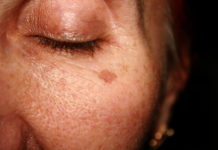According to a study by the University of Toronto, it would be possible to predict the socio-economic status of a person simply by looking at his face, reports the Futura Health site. However, for this to be possible, the face should be impassive and devoid of expression, since a simple smile could make the task much more difficult.
This research by Nicholas Rule and Thora Bjornsdottir was published in the Journal of Personality and Social Psychology. The two researchers separated the participants from their study into two distinct groups of students: one group included those with family incomes below $ 60,000 (about $ 40,000) per year, while the other group Group included those with a family income in excess of $ 100,000 (approximately $ 67,000). Then they took all the students in photo.
Following this, Nicholas and Thora asked a group of volunteers to look at the photos of the students and, instinctively, whether they were rich or poor. According to the researchers, the predictions of the volunteers were so successful that it can only be a mere chance. Their predictions were not influenced either by the ethnic origin or the sex of the students. Thora Bjornsdottir states that “people are not really aware of the clues they use when making these judgments. If you ask them why, they do not know. ”
A neutral face can define socio-economic status
To explain this statement, Nicholas Rule explained in a statement from the University of Toronto that “what we are seeing is that students aged 18 to 22 have already accumulated enough life experience, Has evidently changed and shaped their face to the point that you can tell what their socio-economic status or social class is. ”
A face that would let appear any emotion or a simple smile would hide the clues or the expressions of the face which make it possible to testify of the experience of the person. This is why predictions are valid only for neutral faces. “Over time, your face happens to constantly reflect and reveal your experiences. Even when we think we are not expressing something, the relics of these emotions are still there, “says Nicholas Rule.
Source: Futura Santé


![[Photos] Why WD-40 Is Magic In Your Garden?](https://lifetonik.com/wp-content/uploads/sites/7/2019/08/WD40-Prices-Highres_Page_8_Image_0008-218x150.jpg)





![[Photos] Take A Look Of The Obama’s New Home Before It’s Banned](https://lifetonik.com/wp-content/uploads/sites/7/2019/07/Obama1-218x150.jpg)

![[Slideshow] Celebrity Homes: 21 Of The Most Luxurious](https://lifetonik.com/wp-content/uploads/sites/7/2019/07/Taylor-Swift-218x150.jpg)
![[Slideshow] More Parents Are Now Gluing Pennies to the Bottom of their Kid’s Shoes](https://lifetonik.com/wp-content/uploads/sites/7/2019/07/Keep-Them-Entertained-218x150.jpeg)
![[Photos] 20 Fashion Mistakes That Too Many Women Make!](https://lifetonik.com/wp-content/uploads/sites/7/2019/07/5-style-mistakes-that-make-you-look-frumpy-featured-218x150.jpg)



















![[Gallery] 25 Discounts For Seniors To Which You Are Entitled Without Knowing It](https://lifetonik.com/wp-content/uploads/sites/7/2019/08/EAZxECUXUAAvNZR-218x150.jpg)
![[Slideshow] Here’s the salary of every governor in the United States](https://lifetonik.com/wp-content/uploads/sites/7/2019/08/Charlie-Baker-218x150.jpg)
![[Photos] No One Will Want To Buy This House After Seeing These Pictures](https://lifetonik.com/wp-content/uploads/sites/7/2019/08/terrible-real-estate-photos-2-5c35e727c9f95__700-218x150.jpg)




